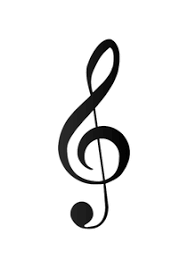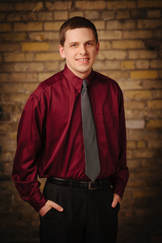|
You’re squirming anxiously in your seat in sacrament meeting as the speakers are giving their remarks. You wouldn’t know how interesting their talk is, much less the topic, as you’re thinking of the tricky pedaling position you’ll have to play for the closing hymn. The closing speaker gets up and you begin to wish they would just speak forever. Gradually you watch the time tick to the dreaded “five after the hour.” Ten or fifteen minutes later they begin a statement with the words “to summarize” and your heart skips a beat as you realize they’ll be ending soon. A few minutes later they begin bearing testimony and then your heart really begins to race as your impending doom draws closer. Then comes the dreaded “amen” repeated by a muttered response from the congregation you’re expected to accompany at that very moment. Oh the anticipation. Our sacrament services all follow the general pattern and we tend to know exactly when our turn is coming. It doesn’t really work in our favor.
If your hands are getting sweaty before getting on the organ, or your mind is scattered with no hope of focus as you play, you’re not alone. Performance anxiety is a thing that even professional musicians must combat. It may or may not comfort you to know that even professionals who have been performing for years still have to battle performance anxiety. It has been ten years since the first time I was asked to give a musical presentation in sacrament meeting and since then I still get nervous when asked to play. Some days I’m confident, others have trembling and sweaty fingers. I was surprised a few months ago when accompanying the congregation, that even though I wasn’t feeling consciously nervous, my hands were getting sweaty as though I were. My body was giving physiological responses quite independent of my current mood. It honestly became a frustration for me as shaky and sweaty fingers are far from the ideal for playing on a keyboard. Through the years, and especially throughout my formal music education I’ve developed a list of tips that I use consistently and have helped me immensely when playing music in front of other people. 1. Prepare in a way that builds muscle memory Notice I said prepare, not practice. We all know the adage “if ye are prepared ye shall not fear.” This goes beyond that. When our conscious memory is compromised we then must depend on our unconscious memory, and that which is innate. If you build muscle memory, it can and will take over when our minds are anxiously concerned on what the congregation is hearing. Build muscle memory through lots of repetition. Be warned though, once muscle memory is developed, it takes a long time to go away. Make sure you’re not repeating the same mistakes over and over, or they will creep up when you’re playing for the real deal. 2. Practice in the area in which you will be playing If you’re playing the organ in a chapel, practice on that organ. Even after hard practice, performing in a foreign area can impede even the best prepared pieces. This can be difficult depending on the restrictions on building access in your local area. Regardless, by practicing on the actual organ and physical space you will be performing in later, you can gain a sense of territory and familiarity that becomes your “zone” when the time comes to play in front of others. The only difference between your practice session and the church service is the presence of other people. But remember that they are now in your zone. You just do your thing. A caution though, bodies and clothing absorb sound. Whatever volume you had the organ at with an empty chapel, you’ll have to raise it considerably to get the same effect you had before without people present in the pews. It’s a change you’ll notice the first time it happens. If you don’t currently have access to the organ beyond Sunday services, I’d suggest having a conversation with a Bishopric member about it. 3. Let the anxiety exist Getting anxious about your level of anxiety quite literally exponentializes the problem. The anxiety is there. Let it be there. Then, focus even harder on the frame of mind you had in which you practiced. If you adopt a different frame of mind in which you practiced, your output will be quite different. It may be a challenge, but it is crucial to remember the frame of mind in which you practiced, and to play from that perspective. If needed, take a moment on the bench before you play to collect your thoughts. Everyone will wait. Everyone follows the organ anyway. 4. Try out this breathing exercise When those closing speakers are wrapping up and I notice my heart starting to race and my fingers getting sweaty I’ve come across a breathing exercise that is used by other professional musicians that has helped immensely. Breath in for four counts, hold for four counts and breath out for eight. Repeat as needed and double the numbers as needed, doing patterns of 8, 8 and 16 and so on. This technique becomes more effective the more you use it over a long period of time. As you do you’ll notice your heart rate slowing down and your mind becoming a little more at ease. This is especially useful as it can be done completely inconspicuously. Even if you’re on the stand with everyone watching, no one is going to notice you doing a peculiar breathing exercise. 5. Give the glory to God Us western folk have a unique culture of performing and self-glorification. Paradoxically this only worsens the expectations on us when giving musical output, especially for the more introverted among us. Remember though, that you are doing this to glorify God and to bring others to Christ. Your musical output isn’t about you at all, so you have no need to worry about what others may think about it. I have expanded more on this topic in another article.
1 Comment
|
AuthorI'm a sacred music enthusiast. I'm one of those people that attends church for the music just as much as the sermon, one of those people that give an evil glare at the people who leave for the congregational hymns, (Ok no, not really). Archives
December 2021
|


 RSS Feed
RSS Feed
